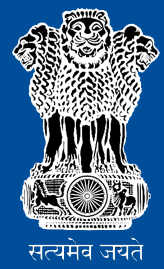Warnings
Nowcast
About Us
Brief History
The beginnings of meteorology in India can be traced to ancient times. And
India is indeed fortunate to have some of the oldest meteorological
observatories of the world. The
Colaba Observatory started meteorological measurement in 1841. The
Regional Meteorological Centres were established soon after the Second
World War. The Regional Meteorological Centre, Mumbai is one of the six
Regional Centres of India Meteorological Department. This was
established in April 1945 for providing weather related services to western
India. The centre is also responsible for the monitoring of tropical cyclone
formation in Arabian Sea as well as providing meteorological services to
aviation sector.

Forecasting Services
• Cyclone Warning Services for Maharashtra, Goa, Gujarat states and Arabian Sea.
• Services to Aviation.
• Services for Shipping & Fisheries, and Ports.
• Inland Warning Services to District revenue, Irrigation, Railway.
• Services to Public by issue of weather bulletins and warnings.
• Services to Agriculture and Farmers.
• Hydrometeorological and Flood Forecasting Services.
• Supply of Meteorological data to members of public, Government
Agencies and Industries for research and planning.
Other Services
• Establish Meteorological Observatories.
• Analyse and interpret meteorological observations and issue forecasts.
• Scrutinise and process observational data for climatological archives.
Mandate
• To take meteorological observations and to provide current and forecast
meteorological information for optimum operation of weather-sensitive
activities like agriculture, irrigation, shipping, aviation, offshore oil
explorations, etc.
• To warn against severe weather phenomena like tropical cyclones,
norwesters, duststorms, heavy rains and snow, cold and heat waves,
etc., which cause destruction of life and property.
• To provide meteorological statistics required for agriculture, water
resource management, industries, oil exploration and other nationbuilding activities.
• To conduct and promote research in meteorology and allied disciplines.
• To detect and locate earthquakes and to evaluate seismicity in different
parts of the country for development projects.
Our Observatory Network

Brief History
The beginnings of meteorology in India can be traced to ancient times. And India is indeed fortunate to have some of the oldest meteorological observatories of the world. The Colaba Observatory started meteorological measurement in 1841. The Regional Meteorological Centres were established soon after the Second World War. The Regional Meteorological Centre, Mumbai is one of the six Regional Centres of India Meteorological Department. This was established in April 1945 for providing weather related services to western India. The centre is also responsible for the monitoring of tropical cyclone formation in Arabian Sea as well as providing meteorological services to aviation sector.

Forecasting Services
• Cyclone Warning Services for Maharashtra, Goa, Gujarat states and Arabian Sea.
• Services to Aviation.
• Services for Shipping & Fisheries, and Ports.
• Inland Warning Services to District revenue, Irrigation, Railway.
• Services to Public by issue of weather bulletins and warnings.
• Services to Agriculture and Farmers.
• Hydrometeorological and Flood Forecasting Services.
• Supply of Meteorological data to members of public, Government
Agencies and Industries for research and planning.
Other Services
• Establish Meteorological Observatories.
• Analyse and interpret meteorological observations and issue forecasts.
• Scrutinise and process observational data for climatological archives.
Mandate
• To take meteorological observations and to provide current and forecast
meteorological information for optimum operation of weather-sensitive
activities like agriculture, irrigation, shipping, aviation, offshore oil
explorations, etc.
• To warn against severe weather phenomena like tropical cyclones,
norwesters, duststorms, heavy rains and snow, cold and heat waves,
etc., which cause destruction of life and property.
• To provide meteorological statistics required for agriculture, water
resource management, industries, oil exploration and other nationbuilding activities.
• To conduct and promote research in meteorology and allied disciplines.
• To detect and locate earthquakes and to evaluate seismicity in different
parts of the country for development projects.
Our Observatory Network




